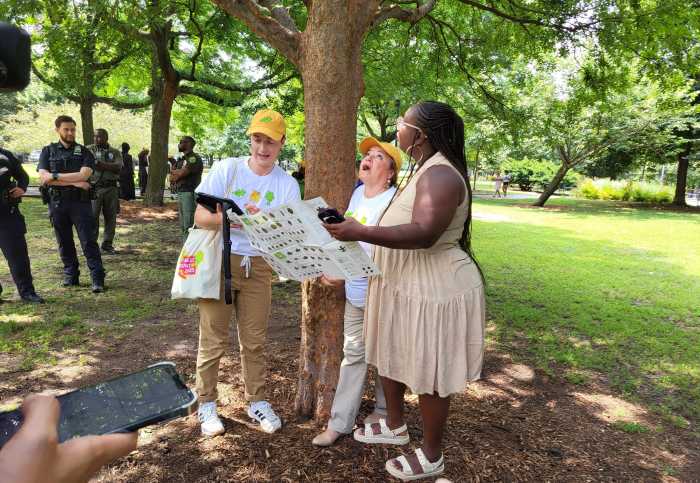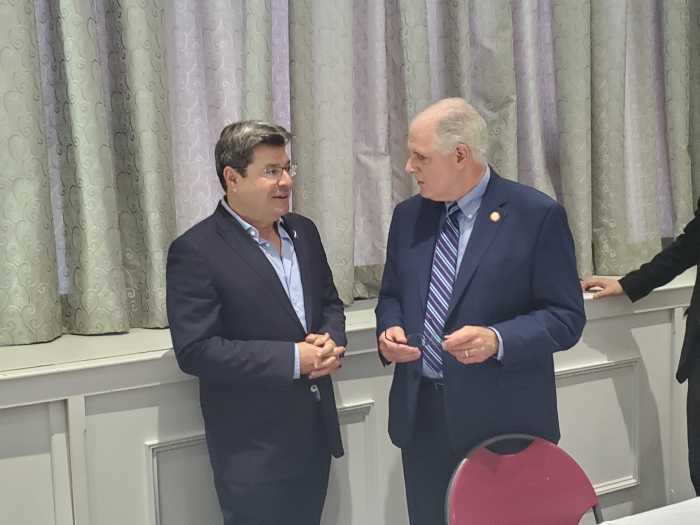By Alex Schmidt
Community gardeners across New York City are celebrating.
On March 23, Parks Department Commissioner Adrian Benepe announced that the city would extend municipal liability protection to community gardens. Previously, these gardens either depended on organizations to cover their private insurance policies or gardeners paid insurance expenses out of pocket.
“I think it’s the best thing since sliced bread,” said Toby Brandt, program coordinator of the Neighborhood Open Space Coalition, which helped keep community gardens in bloom as insurance costs skyrocketed after 9/11. During that time, the cost of insuring a community garden doubled and tripled in certain cases. “Some gardens would have had to close, which would have been a loss to the gardeners, a loss to the community and a loss to the whole city,” Brandt said. “So this administration finally said, ‘Well, wait a minute, we shouldn’t lose the gardens over this.’ And they went out and found a way.”
In a press release, Benepe said, “We are grateful to have found a solution through the extension of the city’s municipal liability, which keeps the financial and administrative burden of property insurance away from the gardeners who keep the property.” With this extension of liability, claims against the city resulting from injuries suffered in gardens will be treated the same as claims arising from injuries on other city property. The city is self-insured and pays valid claims out of tax revenue.
Whereas city employees operate the city’s public parks, the private volunteers who run community gardens make independent decisions about upkeep. Jon Crow, who began gardening in New York City when he moved here from the Pacific Northwest 20 years ago, says this level of autonomy may explain why gardeners for so long had the responsibility of finding their own insurance or doing without.
Yet, Carli Smith, a Parks Department spokesperson, pointed out that community gardeners have been subsidizing the city for 25 years by maintaining city property for free.
While community gardeners will continue to work for free, with the change in policy they will no longer need to pay to do so if they get hurt in their green oases.
“We do this to clean up the neighborhood and the city, and to get a little nature back in our lives,” said Crow.
The city has in effect declared that this work is important enough and the volunteers responsible enough to be covered by the municipal liability fund.
The community gardens’ record would seem to support the decision: only seven injury claims have ever been filed, and only three have resulted in payments to injured parties.
WWW Downtown Express

































